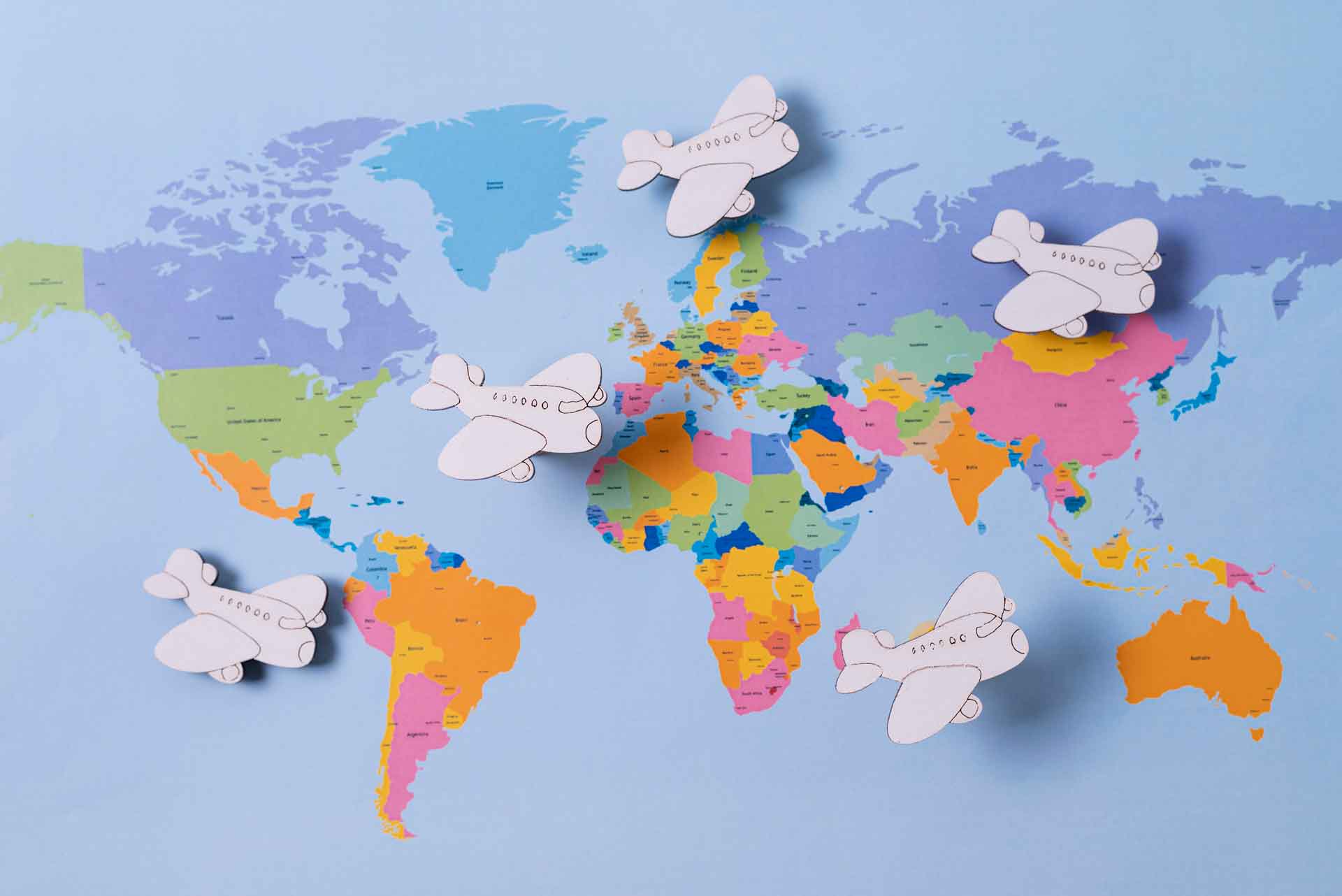There are plenty of reasons to consider moving abroad to work in one of the countries with the most oil and gas reserves. As the global demand for oil and gas increases, these countries have a growing demand for skilled workers.
If you’ve ever wondered if you could get an oil and gas job in another country, read on, but the short answer is whether you specialize in exploration, extraction, management, or maintenance, companies are looking to hire.
Reasons to Work Abroad in the Oil and Gas Sector
Whether you work primarily on land or prefer to work on a drilling rig, an international employer offers incentives you might not find elsewhere.
Competitive Salaries and Generous Benefits
This high demand also means that international companies offer better incentives than domestic employers to convince professionals to choose them over their competitors.
According to the Global Energy Talent Index (GETI), an entry-level position in the Middle East could earn you up to USD 100K. Experienced engineers and pipefitters could earn upwards of USD 220K. This salary often includes living accommodations and health insurance with regular time off.
Travel Opportunities
Oil and gas companies are located worldwide, from drilling locations in the desert to demanding deep-sea rigs far from shore.
You can also learn about new people and cultures and experience something different from what you’re used to back home. Working abroad is not for everyone, but it can benefit professionals looking to try something new.
Opportunities for Career Advancement
Experience working abroad can be an excellent opportunity to boost your resume. Picking up and moving worldwide takes determination and the ability to research new opportunities.
Working for an international company in a new country also demonstrates the ability to adapt to new situations and technologies, showing employers you have the potential to move up into senior positions.
The Ability For Work-life Balance
Working worldwide can be challenging, but many companies offer incentive packages that include the ability to work and then have time off to fly back home to their families.
This arrangement might be working for a month and then having a full month off to spend with family without interruptions.
10 Countries With the Most Oil and Gas Reserves
If you’re wondering where the best opportunities for international employment are, look to the countries with the most oil and gas reserves hiring skilled professionals.
According to the Organization of the Petroleum Exporting Countries (OPEC), in 2024, the top ten countries with the most oil and gas reserves account for over 75% of the world’s oil, with 67% located in the Middle East.
1. Venezuela
Venezuela has the most oil and gas reserves globally, which should result in job opportunities for workers seeking to enter the energy sector. However, job opportunities have varied significantly over the country’s history.
You might have trouble securing a job in this country’s industry right now. Venezuela’s energy sector is facing several challenges.
Political instability, poor economic management, and sanctions limit international job opportunities. If conditions begin to improve, engineering and technology opportunities should exist for those specializing in infrastructure redevelopment.
In the future, you could have job opportunities that include a chance to work with the extraction of extra-heavy crude, something that today is only done in Canada’s oil sands.
2. Saudi Arabia
Saudi Arabia has the second-largest oil reserve. This oil-rich Middle Eastern country’s location, with ample shipping opportunities, makes it ideal for oil that is low in sulfur.
There are openings if you have experience as a drilling engineer or production expert. Saudi Arabia also offers jobs if you specialize in energy exploration or geology.
3. Iran
With some of the largest reserves, Iran only produces just over 2 million barrels of oil daily, with only 700K barrels exported due to sanctions from the United States that have still never been removed.
However, Iran does hold employment opportunities as they also export over 1 million barrels daily of crude oil with plans to increase production.
“Daily production in Canada is at approximately 5 million barrels as of 2023.”
4. Canada
Canada possesses a tenth of the world’s total oil reserves with most of it concentrated in the province of Alberta’s oil sands. Daily production is at approximately 5 million barrels as of 2023, even as their federal government moves toward renewable energy sources.
Job opportunities are plentiful and with its proximity to the United States – Alberta borders Montana and is in the same timezone as Colorado – it offers an opportunity for a job abroad that has similar customs while staying close to home.
5. Iraq
Currently producing 4.5 million barrels a day and exporting three-quarters of it, Iraq aims to match or exceed other countries like Saudi Arabia by producing upwards of 6 million barrels daily by 2029.
Iraq consistently hires ,as many as 100,000 foreign workers in a single year. While there is plenty of potential for working abroad in Iraq, there have been discussions about the need to hire primarily Iraqi workers before companies turn to international applicants.
6. United Arab Emirates (UAE)
According to OPEC, The UAE produces 2.7 million barrels of crude oil daily and exports 2.3 million barrels.
While the oil and gas industry drives the UAE’s economy, the country has used its wealth to become a country of luxury, attracting wealthy tourists from all over the world and showcasing itself as a high-tech haven.
The oil companies located in the United Arab Emirates regularly require workers in several different fields from project management to drilling engineers, and appear always to be hiring.
“Kuwait has begun opening employment opportunities to professionals with bachelor’s degrees in oil and petroleum.”
7. Kuwait
A very small state that produces over 2 million barrels of oil daily, Kuwait’s oil production is led by the Kuwait Petroleum Corporation.
In 2023, the company announced its intentions to double output to 4 million daily barrels by 2030. This plan was devised partly to capitalize on the world’s growing need for oil as countries sought new sources after Russia cut production.
Kuwait has also begun opening employment opportunities to professionals with bachelor’s degrees in oil and petroleum.
8. Russia
Although they prioritize natural gas, Russia still produces over 9 million barrels of crude oil daily. This amount is down from the 11 million barrels they produced daily before the invasion of Ukraine and the resulting Western sanctions against them.
Professionals looking to work in Russia should be aware of any ongoing sanctions that could still be in place and research their options thoroughly.
9. United States
Natural gas exports in 2022 had the highest volume on record, and the United States still stands as the biggest crude oil producer in the world, thanks to shale deposits.
While this country isn’t “abroad” for many workers, the United States still holds plenty of job opportunities for workers who want to stay close to home and gain valuable work experience. In 2024, many companies are particularly interested in hiring data and automation professionals.
10. Libya
With a daily production average of about a million barrels, Libya in Northern Africa is a relatively minor oil producer compared to the reserves they hold. Like Venezuela, this is partly due to political instability and power struggles following a major civil war.
Although there have been setbacks, Europe is considering the country as a source of oil, which might help push for higher daily production.
The Skills You Need to Get an Oil and Gas Job Abroad
Getting a job abroad in the oil and gas industry requires employment and interpersonal skills.
Learn about the job, regulations, and culture you would be working in, which includes understanding the dominant language and the business environment. Cross-cultural communication skills can go a long way to securing a global job.
- Education: While getting a job on an oil rig without experience is possible, many international companies will require a bachelor’s degree or diploma in a related field.
- Training: Prove that you have the training to work either on or offshore. This can include safety protocols, first-aid training, or equipment-specific training.
- Be a team player: Show that you can communicate and work as a team. Oil and gas jobs are often isolated or restricted to just employees for long periods.
Conclusion
The countries with the most oil and gas reserves are offering plenty of job opportunities abroad for energy professionals with the right skills and a willingness to relocate. These jobs offer perks like very competitive salaries and the ability to travel and see the world while doing so.
If you’re interested in learning more about oil and gas job opportunities or the most in-demand skills for the energy industry, check out EnergyJobSearch.










